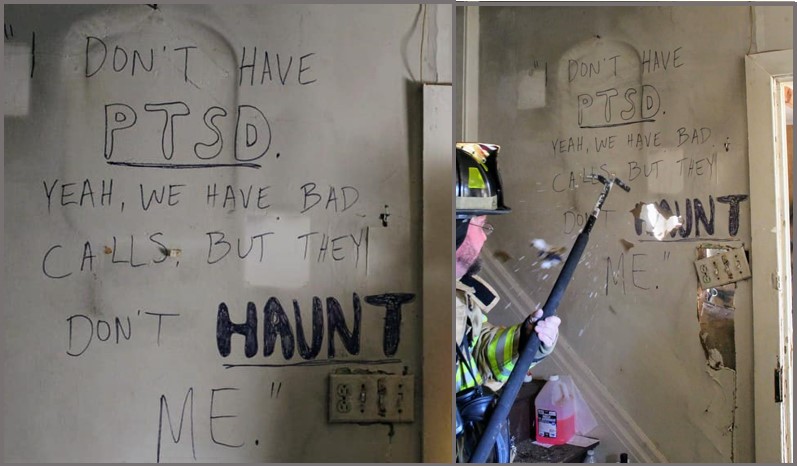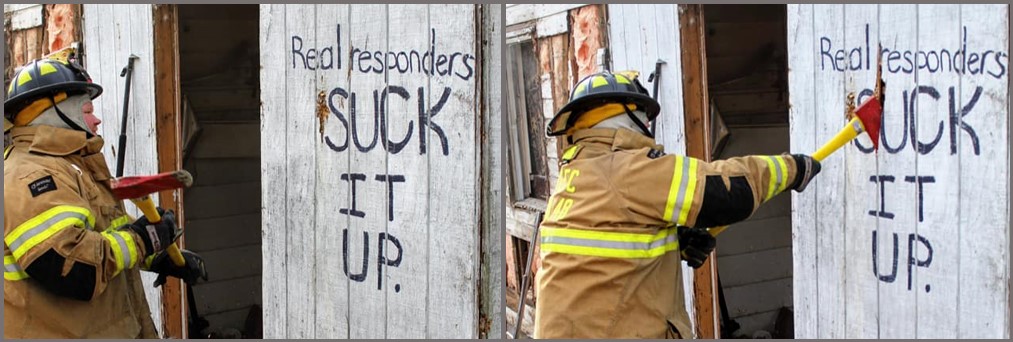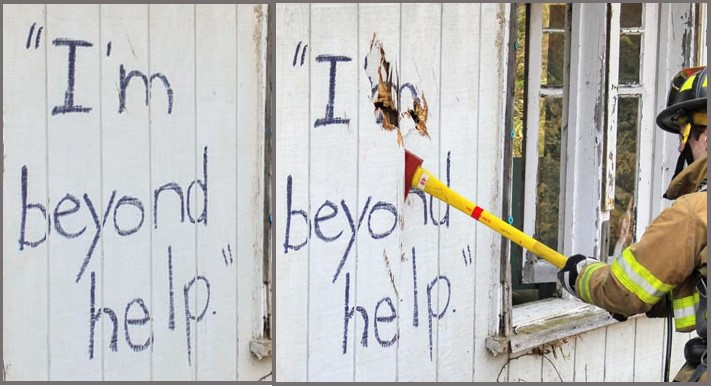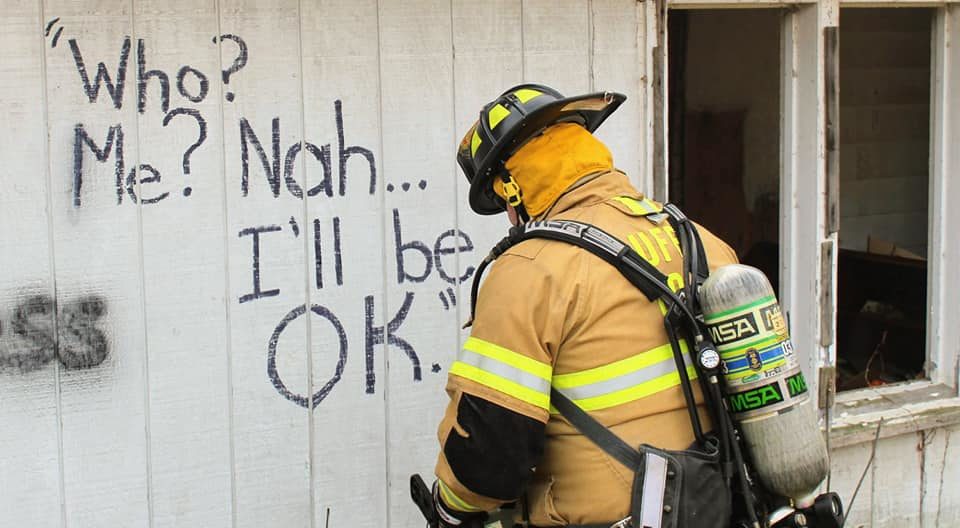The Stigma
When someone suffers a tragedy such as a loss or medical diagnosis, people reach out and help. We cook dinners, babysit kids, or create GoFundMes. Having a clear problem helps us find tangible solutions and being able to help like this feels good. Now imagine that problem is a mental health crisis. No mowed lawn or casserole is going to fix this problem. People don’t know how to react or help. The stigma is that mental health is some untouchable issue that normal people can’t handle. This reaction, this avoidance, is the reason many don’t want to admit when they’re facing mental health issues. It’s somehow untouchable, and no person wants to be that.
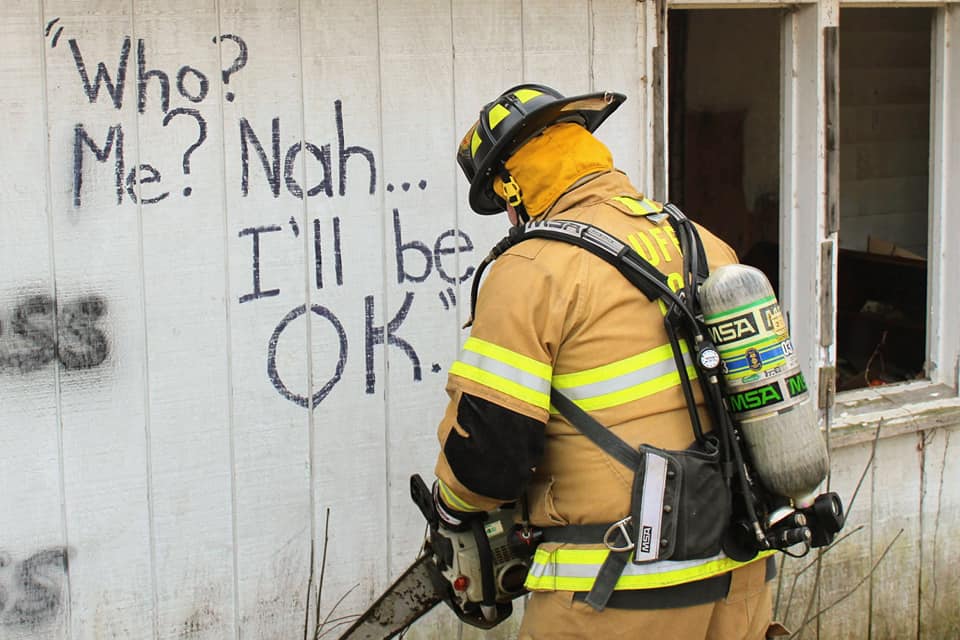
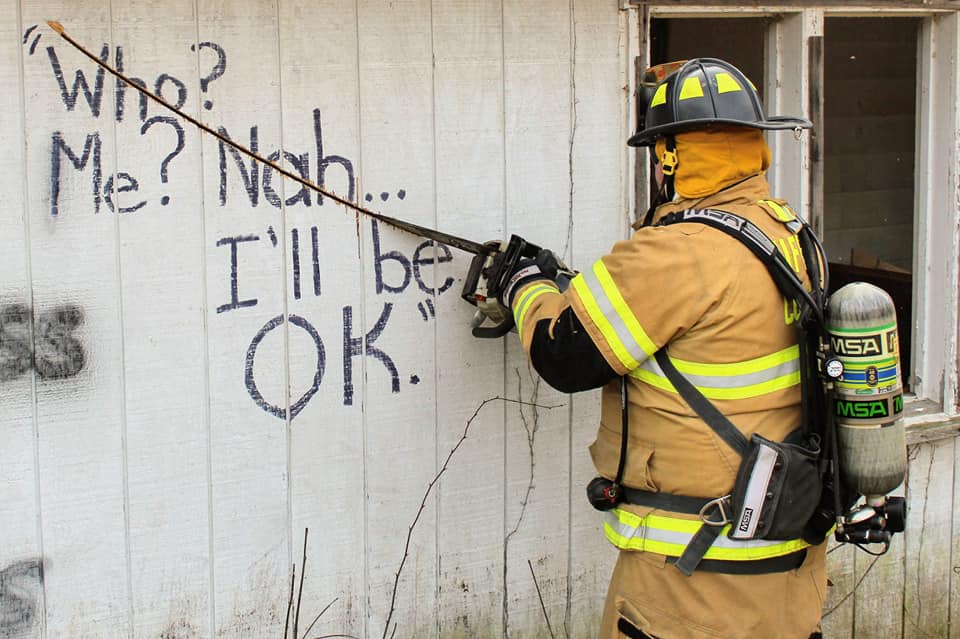
Pushing it down
No one wants to be avoided or seen as weak or a failure. No one, especially not those who are called upon for help. When you’re the help, a first responder to physical tragedies or emergencies, you need to be reliable and strong. Having mental health issues makes many feel they can’t uphold this image of a strong and capable helper. It’s this fear that causes many first responders to not admit when they need help or they’re having issues. They don’t want that image on themselves. Instead, they start pushing it down, hiding their inner turmoil. They hold a barrier around themselves and don’t let anyone in.
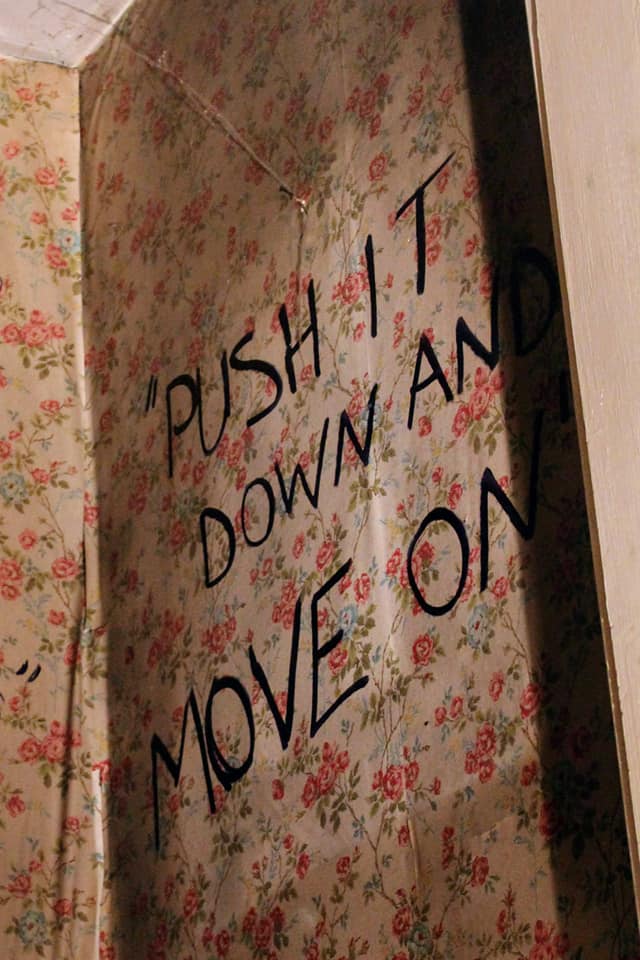
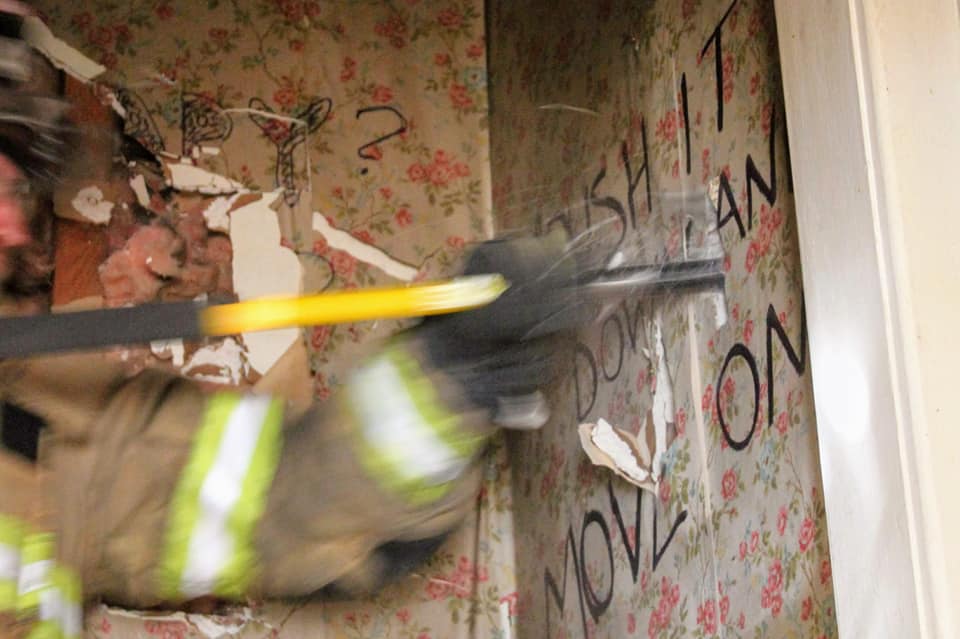
The Real Danger
Letting mental health problems go unnoticed and untreated is dangerous for marriages, jobs, and lives. Cutting right to the chase, the real danger is suicide. With a fear of speaking up due to the stigma, lack of support, lack of confidence, or the possibility of job loss (many first responders see their jobs as their personal identity), many remain silent. This silence can be deadly. An article on the NIOSH Science Blog from the CDC highlights recent studies on suicide rates among first responders.
“Law enforcement officers and firefighters are more likely to die by suicide than in the line of duty. Furthermore, EMS providers are 1.39 times more likely to die by suicide than the public. Studies have found that between 17% and 24% of public safety telecommunicators have symptoms of post-traumatic stress disorder (PTSD) and 24% have symptoms of depression. While telecommunicators are often the very first responders engaged with those on scene, research on their suicide risk and mental health has lagged.”
National Institute for Occupational Safety and Health (NIOSH), April 2021
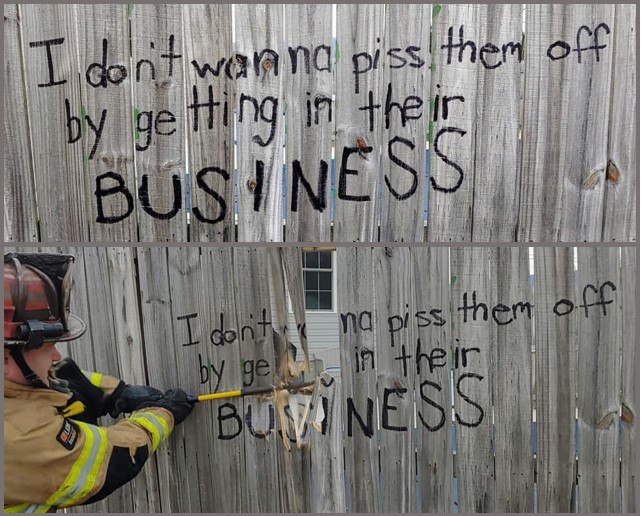
Where Are We Now?
We’ve come a long way in mental health awareness and services over the last few decades, but is it far enough? NIOSH is working with the government and other resources to overcome some of the barriers. In 2020, the House and Senate allowed funding for the Helping Emergency Responders Overcome (HERO) Act. This will help the CDC and other factions manage better reporting so trends can be discovered and more understood. While where we are now still shows a high suicide rate among first responders, many resources are growing. The problem may be getting them into the public spotlight, but here’s just a few mentioned by first responders themselves:
- All Clear Foundation – a pivot point for many resources to help better the well-being of first responders
- Sonder Mind – therapy group that allows you to filter for specific first responder experienced therapists
- Violently Injured Police Officers Organization – peer support group and resource center for injured law enforcement officers
- Mental Health First Aid – resource for training courses aimed at making mental health first aid as common as CPR training

Busting Barriers
At First Responder Coaching, we’re bringing to light many mental health misconceptions, working to smash the stigma and make new connections. We’re normalizing mental health care by talking about it. Like many other resources and organizations, we want to bust those barriers and bring mental and self care into the limelight. First responders are starting to get training as they onboard or as they complete Continuing Education, putting this type of help at the forefront of their minds, but it’s not enough yet.
We can’t let these problems stay behind those tough brick walls we build around ourselves. We need to take care of our helpers from the inside out. Podcasts, like The What’s a Hero Podcast, are talking about it. Social Media groups are talking about it. People, like Anne Marie McKillip, are making efforts to bring these issues to light and make them common knowledge. [All images from her post and this article are courtesy of Jenni Short. Permission to share from Anne Marie McKillip.] We’ll close with important information from her Facebook post. Keep an open channel. Keep talking. Don’t ignore yourself or anyone else going through this. Speak up and let’s smash the stigma!
IF YOU NEED HELP NOW:
- Fire/EMS Helpline: 1-888-731-3473
- Safe Call Now: 1-206-459-3020
- COPLINE: 1-800-267-5463
- Nat’l Suicide Hotline: 1-800-273-8255
- Crisis Text Line: 741-741
